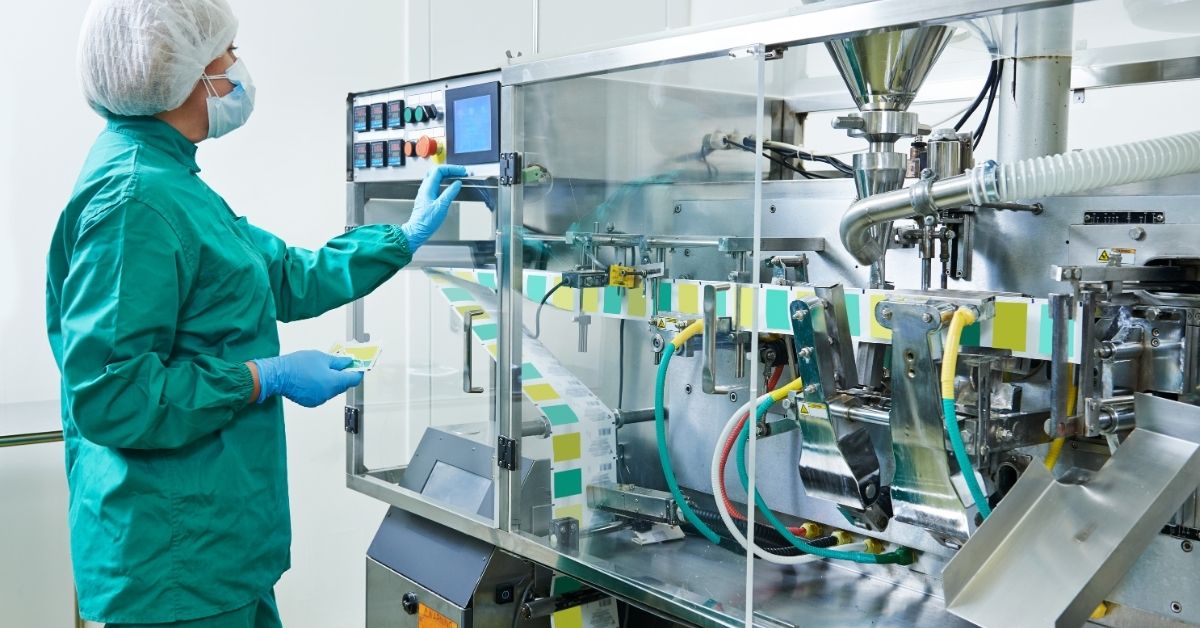Medical products are life-saving tools used by healthcare professionals during operations, improving patients’ quality of life and enabling critical diagnostics.
Read our overview on why now is the best time to buy a UK medical manufacturing business, explore the sector’s growth potential, and understand the key operational and compliance challenges to navigate.
A Resilient Market
The medical manufacturing sector is a cornerstone of healthcare, benefiting from steady demand. With an ageing population, rising healthcare needs, and rapid technological advancements, the industry remains robust and recession resistant.
While the UK market is not the largest in Europe (behind France and Germany), the global medical manufacturing market is projected to reach approximately £507 billion in 2025. A key advantage of operating a UK-based medical manufacturing business is the ability to serve global markets, diversifying revenue streams and strengthening financial stability.
Domestically, the UK medical devices market is expected to grow at a 6.50% compound annual growth rate (CAGR) from £13.6 billion in 2023 to £24.6 billion by 2032.
Discover businesses for sale by registering or logging in at BusinessBuyers.co.uk, an Altius Group site.
A World-Renowned Regulatory Framework
Operating in the UK means adhering to rigorous regulatory standards, such as those set by the Medicines and Healthcare products Regulatory Agency (MHRA) and UKCA marking. These regulations ensure high product quality and offer a competitive edge over businesses in less strictly regulated regions.
Specialised medical manufacturing equipment undergoes stringent testing due to its critical role in patient care. Some businesses must be MHRA-registered depending on their product offerings, while others must comply with niche regulations such as EN ISO 15883, which governs washer-disinfectors for reusable medical devices.
Rather than posing a challenge, these high standards create an opportunity. International buyers often prefer UK-made medical products, knowing they meet rigorous testing and compliance benchmarks.
Government and NHS Support
The UK government actively supports medical innovation through funding and tax incentives, such as R&D tax credits. The NHS is a major purchaser of medical products, providing manufacturers with potential long-term contracts.
Government schemes like the Life Sciences Innovative Manufacturing Fund (LSIMF) offer grants to support businesses in this sector. Despite reductions in some areas of NHS funding, life sciences remain a key focus, particularly under the Government’s pledge to strengthen the NHS. Medical manufacturers and life sciences firms work closely together, ensuring continued investment and support.
Read: Is Now a Good Time to Buy a UK Life Sciences Company?
While cost-cutting measures may make NHS procurement more competitive, this primarily impacts new entrants rather than established manufacturers. Furthermore, businesses can mitigate risks by diversifying their client base beyond the NHS.
Innovation and Export Opportunities
The UK is a hub for medical innovation, with leading universities and research institutions driving advancements. British-made medical products are globally respected for their quality and compliance, offering strong export potential.
Additionally, the UK’s investment in the Oxford-Cambridge corridor ensures a steady supply of skilled professionals for the sector.
A Scalable and Profitable Industry
R&D costs make acquiring an established medical manufacturing company a lower-risk, higher-reward investment compared to starting from scratch. Established firms have already navigated the rigorous early R&D stages and often generate steady revenue from existing products. Some patented products emerge from proprietary research, further enhancing profitability.
Medical devices, consumables, and pharmaceutical-related manufacturing offer high profit margins, especially for patented or proprietary products. With the right strategy, businesses can scale production and expand into international markets.
The Importance of the Right Medical Sector Business Broker
The UK’s medical manufacturing sector presents a compelling investment opportunity, with a skilled workforce, cutting-edge technology, and a favourable business environment. With mergers and acquisitions on the rise, major corporations are actively acquiring innovative startups to strengthen their market position. Investors who act swiftly can capitalise on this dynamic industry, projected to grow at 6.50% CAGR through 2032.
Buying or selling a medical manufacturing business is complex, requiring expertise in goodwill valuation, long-term R&D investment assessment, and patent considerations. The specialists at Redwoods Dowling Kerr are well-equipped to navigate these intricacies.
Whether you are entering the medical manufacturing space or planning a profitable exit, Redwoods Dowling Kerr offers expert guidance to ensure a seamless transaction. Contact our team today to explore your ideal M&A opportunity.
Thinking of selling your business?
If you are considering selling your business and have any questions about what you may need to consider, then one of our experienced sales negotiators are always here to chat through any important points you may want to discuss.
Looking to buy a business?
Are you looking to purchase a business? Then the RDK sales team are here to work with you. Perhaps you are considering entering a new market or expanding your presence within an existing one? Whatever stage you’re at RDK have a wealth of opportunities that may be of interest to you.
MORE FROM CATEGORY: Medical
